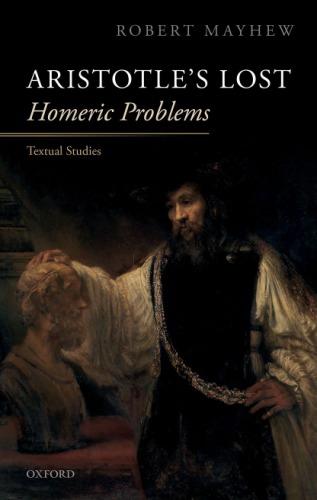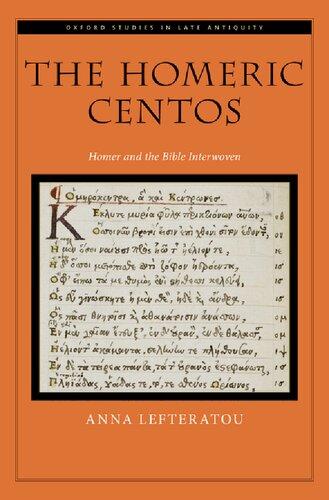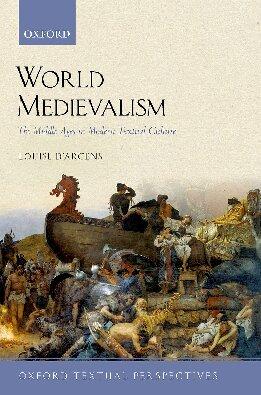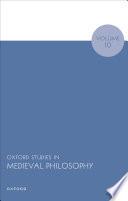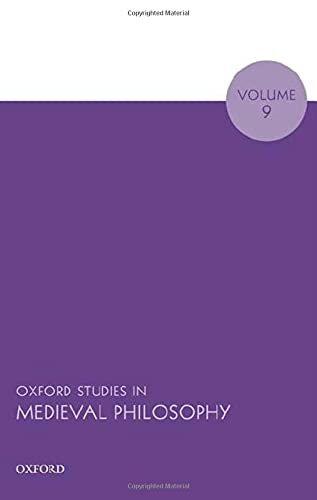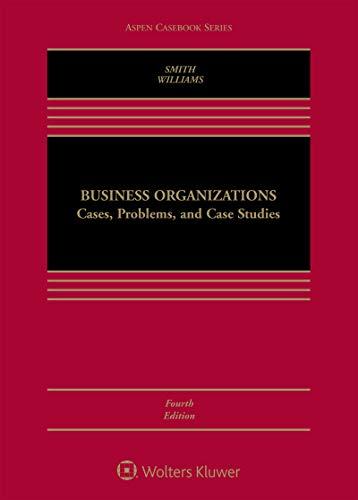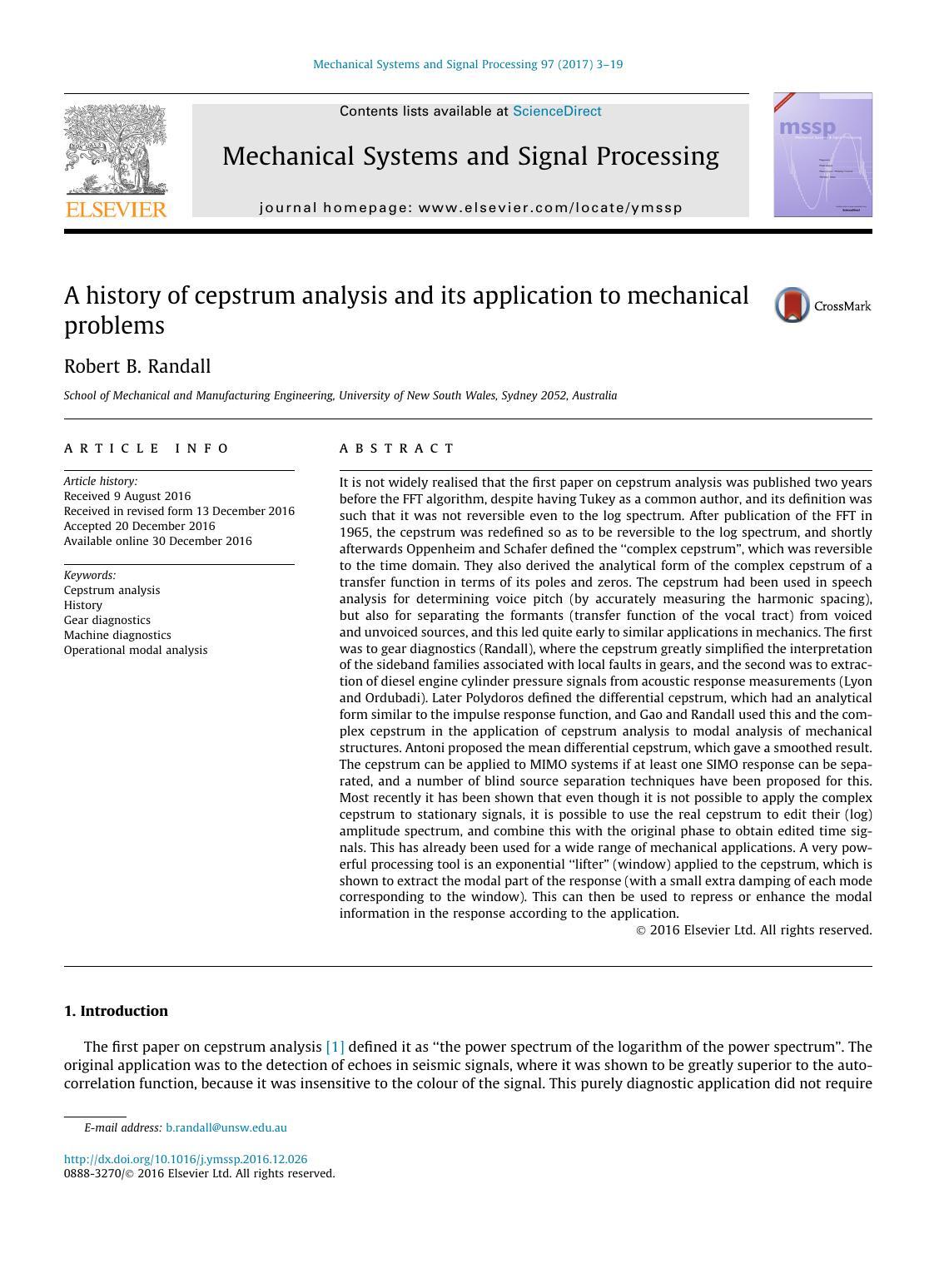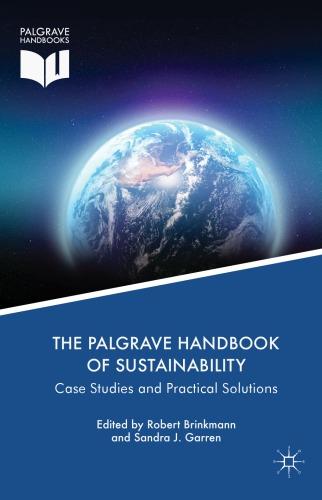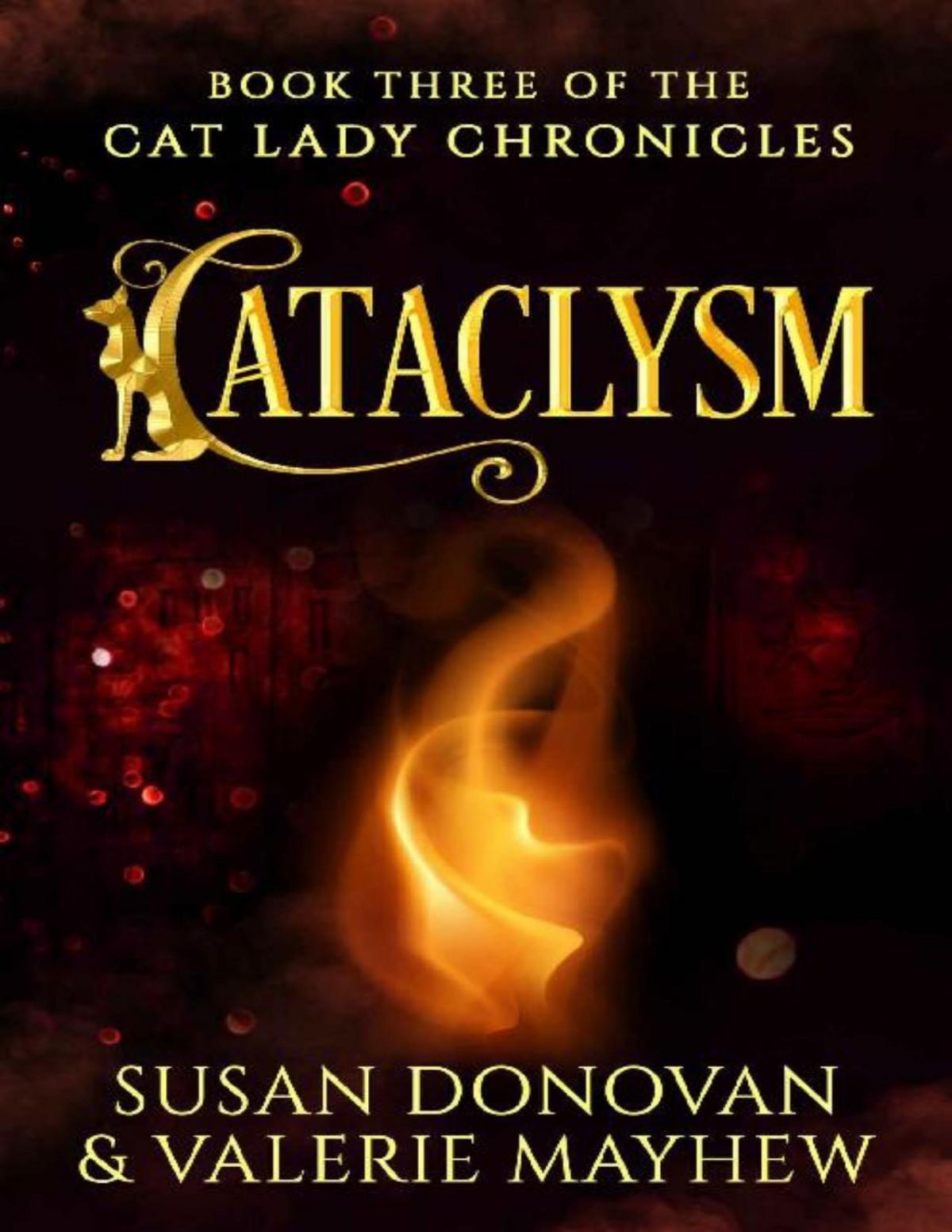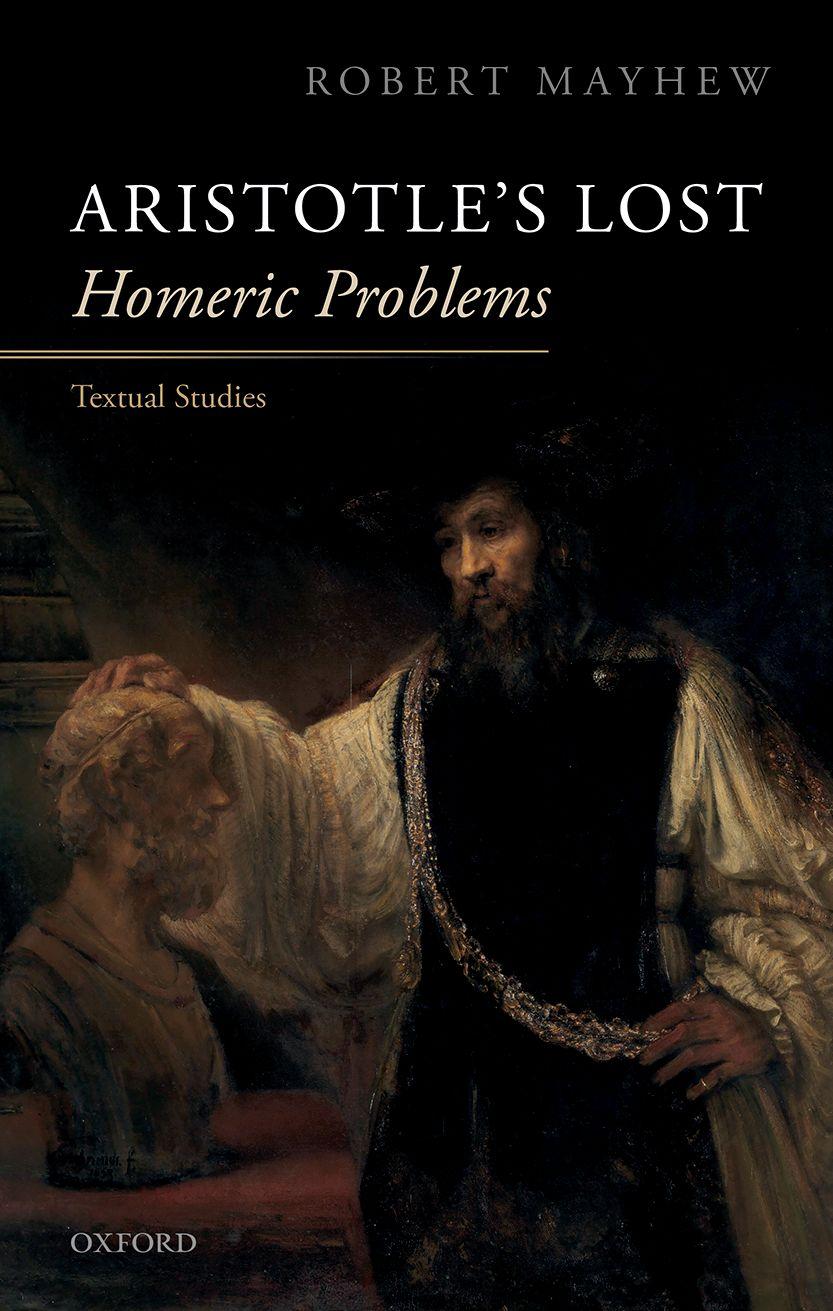Aristotle’s Lost Homeric Problems: Textual Studies Robert Mayhew
Visit to download the full and correct content document: https://ebookmass.com/product/aristotles-lost-homeric-problems-textual-studies-rober t-mayhew/
More products digital (pdf, epub, mobi) instant download maybe you interests ...
The Homeric Centos: Homer and the Bible Interwoven (OXFORD STUDIES IN LATE ANTIQUITY SERIES) Anna Lefteratou
https://ebookmass.com/product/the-homeric-centos-homer-and-thebible-interwoven-oxford-studies-in-late-antiquity-series-annalefteratou/
World Medievalism: The Middle Ages in Modern Textual Culture (Oxford Textual Perspectives) Louise D'Arcens
https://ebookmass.com/product/world-medievalism-the-middle-agesin-modern-textual-culture-oxford-textual-perspectives-louisedarcens/
The Eusebian Canon Tables: Ordering Textual Knowledge in Late Antiquity (Oxford Early Christian Studies) Matthew R. Crawford
https://ebookmass.com/product/the-eusebian-canon-tables-orderingtextual-knowledge-in-late-antiquity-oxford-early-christianstudies-matthew-r-crawford/
Oxford Studies in Medieval Philosophy Volume 10 Robert Pasnau
https://ebookmass.com/product/oxford-studies-in-medievalphilosophy-volume-10-robert-pasnau/
Oxford Studies in Medieval Philosophy Volume 9 Robert Pasnau (Editor)
https://ebookmass.com/product/oxford-studies-in-medievalphilosophy-volume-9-robert-pasnau-editor/
Business Organizations: Cases, Problems, and Case Studies (Aspen Casebook Series) 4th Edition, (Ebook PDF)
https://ebookmass.com/product/business-organizations-casesproblems-and-case-studies-aspen-casebook-series-4th-editionebook-pdf/
A history of cepstrum analysis and its application to mechanical problems Robert B. Randall
https://ebookmass.com/product/a-history-of-cepstrum-analysis-andits-application-to-mechanical-problems-robert-b-randall/
The Palgrave Handbook of Sustainability: Case Studies and Practical Solutions Robert Brinkmann
https://ebookmass.com/product/the-palgrave-handbook-ofsustainability-case-studies-and-practical-solutions-robertbrinkmann/
CATACLYSM: Book Three of the Cat Lady Chronicles Susan Donovan & Valerie Mayhew
https://ebookmass.com/product/cataclysm-book-three-of-the-catlady-chronicles-susan-donovan-valerie-mayhew/
ARISTOTLE ’ SLOST HOMERICPROBLEMS Aristotle’sLost HomericProblems TextualStudies ROBERTMAYHEW 3 GreatClarendonStreet,Oxford,OX26DP, UnitedKingdom
OxfordUniversityPressisadepartmentoftheUniversityofOxford. ItfurtherstheUniversity’sobjectiveofexcellenceinresearch,scholarship, andeducationbypublishingworldwide.Oxfordisaregisteredtrademarkof OxfordUniversityPressintheUKandincertainothercountries
©RobertMayhew2019
Themoralrightsoftheauthorhavebeenasserted FirstEditionpublishedin2019
Impression:1
Allrightsreserved.Nopartofthispublicationmaybereproduced,storedin aretrievalsystem,ortransmitted,inanyformorbyanymeans,withoutthe priorpermissioninwritingofOxfordUniversityPress,orasexpresslypermitted bylaw,bylicenceorundertermsagreedwiththeappropriatereprographics rightsorganization.Enquiriesconcerningreproductionoutsidethescopeofthe aboveshouldbesenttotheRightsDepartment,OxfordUniversityPress,atthe addressabove
Youmustnotcirculatethisworkinanyotherform andyoumustimposethissameconditiononanyacquirer
PublishedintheUnitedStatesofAmericabyOxfordUniversityPress 198MadisonAvenue,NewYork,NY10016,UnitedStatesofAmerica BritishLibraryCataloguinginPublicationData Dataavailable
LibraryofCongressControlNumber:2018956451
ISBN978–0–19–883456–4
Printedandboundby CPIGroup(UK)Ltd,Croydon,CR04YY
LinkstothirdpartywebsitesareprovidedbyOxfordingoodfaithand forinformationonly.Oxforddisclaimsanyresponsibilityforthematerials containedinanythirdpartywebsitereferencedinthiswork.
ToToreBoeckmann Preface Aristotlewroteawork,likelyentitled Ἀπορήματα or Προβλήματα Ὁμηρικά (whichIrefertoas HomericProblems),1 inatleastsixbooks, presentingandsolvingproblemsrelatedtotheepicsofHomer.2 The twomostrecentcollectionsofthefragments3 ofAristotleeach includenearlyfortytextsconnectedtothiswork(frs.142–79Rose/ 366–404Gigon).4 Thevastmajorityofthemaredrawnfromthe numerousscholiainthemanuscriptsoftheHomericepics5 and manyofthese,inturn,originallycomefromthe HomericQuestions of Porphyry(thirdcentury AD).6
Alongwith Poetics 25(whichIdiscussinchapter1),thesetextsare clearlyourbestsourceforinformationaboutthe HomericProblems. Thismaterial,however,wouldlikely fill,orrepresentsthecontentof, lessthanonebook;butAristotle’ s HomericProblems consistedof multiplebooks.7 Therefore,Ithinkitworthwhiletoexploreother waysofdeterminingthecontentofthislostwork,beyond Poetics 25 andthescholiaandothertextsgatheredtogetherinthestandard collectionsoffragments.8
Withrareexceptions,the HomericProblems hasreceivedlittle attention.Amongtheexceptions,Iwouldmentionthreedissertations
1 Both ἀπορήματα and προβλήματα canberendered ‘problems’ (moreonthis later).InsomeearlierpublicationsIreferredtothisworkas HomericPuzzles,butthat didnotcatchon.AnditbecamecleartomefromfeedbackIhavereceivedoverthe pastcoupleofyearsthatitwouldnot.Moreonthetitleofthisworkinchapter2.
2 ‘Homer’ isshorthandfor ‘thepoet(s)whowrotethe Iliad andthe Odyssey ’
3 Itoncewasastandardpracticetodistinguish fragmenta and testimonia.Butin mostcases(andcertainlyindealingwiththeevidenceforAristotle’slostworkon Homer)thisisrarelyifeverpossible.Iwasthereforetemptedtousethesomewhat clunky ‘source-texts’ instead;butintheend,Ihaveoptedtouse ‘fragments’ broadly understoodtoincludebothwhatusedtobecalled fragmenta and testimonia.
4 Rose(1886)andGigon(1987).(NB:Theformeristhethirdofthecollectionsof Aristotle’sfragmentseditedbyRose,andsoitisoftenreferredtoorcitedas ‘Rose3’).
5 SeetheNoteonSourcesbelowfortheeditionsofthescholia.
6 SeetheNoteonSourcesbelow.Porphyrywasawareoftheworkofanumberof Homericscholars,goingatleastasfarbackasthe fifthcentury BC.
7 Moreover,onemustusethescholiawithcaution.SeeMayhew(2017b).
8 Idonotmeantoimplythatthesestandardcollectionsoffragmentsare,aside frombeingincomplete,otherwisereliable.Seechapter3.
viii Preface (Carroll1893,Ammendola1907,9 andespeciallyHintenlang1961),a small(butgrowing)numberofjournalarticles,10 andmostrecently, Breitenberger’sGermantranslationofthefragments,withcommentary(2006),andonechapterinBouchard’ s DuLycéeauMusée:théorie poétiqueetcritiquelittéraireàl’époquehellénistique (2016,ch.3).These works,however,thoughvaluable,donotgothatfarbeyond Poetics 25 andthestandardfragmentsgatheredfromthescholiaandother sources.Ihopethatthepresentsetofstudiesexpandsourknowledge ofthelost HomericProblems,especiallybygoingintoterrainforthe mostpartnotcoveredbytheseearlierworks.
ThepresentsetofstudiesonAristotle’ s HomericProblems is dividedintothreeparts,the firstofwhichdealswithpreliminaryissues.
Inchapter1(‘Pre-AristotelianHomericScholarshipandAristotle’ s Poetics 25’),Isetthecontextforwhatcomeslater, firstbydiscussing approachestothestudyofHomer,fromthepresocraticstoPlato (withallegoricalinterpretationreceivingspecialattention),andsecond byexamining Poetics 25,whichisthelongestextantdiscussionby AristotleofhowtoapproachtheinterpretationofHomer,andin particularhowtosolveHomericproblems.Inchapter2(‘TheTitles (andSubtitles)ofAristotle’sLostWorkonHomer’),Ipresentthe ancientevidenceforaworkbyAristotleonHomericproblems,and thevarioustitlesattributedtoit(aswellasthenumberofbooksitwas saidtocontain,andthepossibilityofsubtitlesofitsseparatebooks).
Inchapter3(‘AReappraisalofHeitz’),aspartofmyappealto scholarsnottolimitthemselvestothefragmentsinRoseandGigon whenstudyingthe HomericProblems,IarguethatHeitz(1869)isa toooftenoverlookedcollectionofAristotle’sfragments andinthe processexaminetwoneglectedtexts.
Inthenexttwopartsofthebook,Ipursuetwodifferentways ofexpandingourknowledgeofthe HomericProblems.Onewayisto examineincontextquotationsfrom(orallusionsto)Homerin Aristotle’sextantworks.ThisIdoinPartII.Iproceedasfollows: inquirewhethersuchpassageswere(likely)thesubjectofdebateor discussioninantiquity;considerwhethersuchdebateoverordiscussionaboutaparticularpassage fitsAristotle’saimsandmethodsinhis
9 Ihavenotbeenableto findacopyofthisUniversityofNaplesdissertation.
10 SeeSodano(1964),(1965),(1966),(1974),Huxley(1979),Bouchard(2010)and (2018),Fortenbaugh(2015).TotheseIwouldaddMayhew(2016),(2017a),(2017b), and(2017c).
lost HomericProblems (i.e.isthereaproblemattheheartofthe debateordiscussion,ofthesortwithwhichAristotlewasconcerned in Poetics 25and,fromwhatweknowfromothertexts,inthe HomericProblems);and finally,doessuchinquiryandconsideration oftheHomericpassageinitsAristoteliancontextgiveusahintat allowustospeculateabout howhemighthavesolvedtheproblem (oralternatively,whetherhewascriticalofHomer).SofarasIknow, noonehassuggestedthissource.NowIadmitthatcertaintyisrarely possibletoestablishhere;rather,onecanspeakonlyofattaining degreesofpossibilityorprobability.ButIbelieveIhavemadesome progress.Andattheveryleast,thesestudiesgiveusabetterideaof howAristotlewouldhaveapproachedsomeofthedebatesengagedin byHomericscholarsinantiquity.11 Inthispartofthebook,Iconsider theevidencefromthe HistoryofAnimals (chapter4),the Rhetoric (chapter5),and Poetics 21(chapter6).
PartIIIconsistsoffourstudiesonselect(andinmostcases neglected)fragments.Ibegin(chapter7, ‘AristotleontheMeaning of τάλαντον in Iliad 23’)withasetoffragmentsthathavenotbeen neglected(inthesenseIhavebeenusingtheterm),i.e.theyare includedinthestandardcollectionsofAristotle’sfragments,and havereceivedsomescholarlyattention.Nevertheless,Ihavefound thatthepresentationofthismaterial ineditionsofthescholiaand inthecollectionsofthefragmentsofAristotle isnotalwaysclear orcomplete,andthediscussionofitisnotentirelysatisfactory.So Itakeafreshlookattheavailableevidence,goingbacktotherelevant scholiainthemanuscriptsthemselves.Inchapter8(‘Aristotleand AristarchusontheMeaningof κέρας inthe Iliad ’),IexaminenumeroustextsinwhichAristotleand/orAristarchusaresaidtoofferan interpretationonthespecificmeaningincontextof κέρας (‘horn’). Itreatthetwoauthorstogether,becauseonereasonthatthese Aristotlefragmentshavebeenneglectedisthatearlierscholarshave arguedthatreferencestoAristotleareinfact,inmostcases,mistakes forAristarchus.Irejectthisconclusioninalmosteveryinstance.The Aristotlefragments,properlyidentified,providefurtherevidencefor Aristotle ’sviewsonmetaphorinHomer.Inchapter9( ‘Aristotleon theTheomachyin Iliad 21 ’),Iexaminetworelativelyneglectedtexts: onefromanOxyrhynchuspapyruscontainingacommentaryon
11 Iusetheexpression ‘Homericscholar’ quitelooselyasshorthandforanyonein antiquitywhoweknowexpressedopinionsabouttheHomericepics.
x Preface
Iliad 21,theotherfromalengthyscholiuminthethirteenth-century Byzantinemanuscript Genavensisgr.44.Theseareimportantfragmentsintheirownright;butinaddition,giventhattheTheomachy of Iliad 21wasanobjectofallegoricalinterpretationfromtheearly historyofHomericscholarship,anexaminationofthemoffers(at leastbyimplication)insightsintowhetherAristotleeverengagedin suchinterpretation.Thisissueiscontinuedanddealtwithmore explicitlyinthe finalchapter(‘Aristotle’ sNaturalisticInterpretation of Odyssey 12’ ).ThetextualevidenceforAristotle ’s(possibleor probable)discussionsofthreeepisodesin Odyssey 12arediscussed, namely,concerningtheSirens,theambrosia-bearingdoves,andthe CattleoftheSun.Allthreehavehistoricallybeentreatedallegorically.Further,assomecontemporaryscholarstakethefragmentson thesedovesandcattletobeevidenceforAristotleinterpreting Homerallegorically,thisisanappropriateplacetoreturntothe issueofallegoricalinterpretationinAristotle firstraisedinchapter 1 andassuchitservesasanappropriateconclusiontothevolume. Ibelievethesestudiesconfirmandmakeclearerthecloseconnectionbetweenthe HomericProblems and Poetics 25;providefurther examplesandabroaderrangeofthekindsofproblemsAristotle attemptedtosolve;andcastdoubtontheideathatAristotle,in solvingHomericproblems,sometimesengagedinallegoricalinterpretation.Mostofall,Ihopethisvolumemakescleartheneedfor furtherworkonthelost HomericProblems,andpromptsother scholarstoundertakethatwork.
Acknowledgments Ibeganworkonthisprojectduringa2013–14sabbaticalleave:Iwish tothankSetonHallUniversityforgrantingmethatleave,andthe AynRandInstituteforaresearchgrantthatmadepossibleayearlongsabbatical.IalsowishtothankSetonHallforgrantingmecourse releaseduringtwosemesters(Spring2015andSpring2018),aswell asa2016UniversityResearchCouncilSummerStipend,allofwhich contributedtothecompletionofthisproject.Manythanksaswellto GregoryNagy,andthepersonnelatHarvardUniversity’sCenterfor HellenicStudies(WashingtonDC),which,duringtwovisits(April 6–12,2015andMarch6–10,2017),providedtheperfectatmosphere toworkon(interalia)the HomericProblems. Ithasonceagainbeenapleasuretoworkwiththepersonnelat OxfordUniversityPress.SpecialthankstoCharlotteLoveridgefor herencouragementandsupport,toGeorginaLeightonforherwork onthisprojectinitsearlystagesandtoSuryajeetMullickforseeingit throughtocompletion,andtoKimRichardsonforhissuperb copyediting.
Iwishtothanktheanonymousrefereesforthepress,fortheir encouragingwordsandespeciallyfortheircriticalcomments,which promptedmetomakemanyfruitfulrevisions.Manythanksaswellto everyonewhocommentedonindividualchapters(orpartsthereof) and/oransweredvariousquestionsconnectedtomyworkonthis project:DavideBaldi,ElsaBouchard,TizianoDorandi,Dimitri Gutas,RichardJanko,MonteJohnson,MichielMeeusen,Stephen Menn,GregoryNagy,LaraPagani,IoannaPapadopoulou,Jason Rheins,andDavidSider.Iwouldliketosingleoutforspecialthanks FilippomariaPontani,who,uponreceivingthe firstofmanyemails, outoftheblue,fromanunknownscholarrequestinginformation, responded(that firsttime,andmanytimesafter)withpatienceand generosity(andmoreoftenthannot,withhighlyusefulattachments). Ofcourse,noneofthesescholarsshouldbeheldresponsibleforany remainingerrors.
Forthepastthirtyyears(andcounting),mygoodfriendTore BoeckmannandIhavediscussedestheticsingeneral,andAristotle’ s Poetics inparticular(aswellasitsunappreciatedinfluenceon Romanticliterature).Idedicatethisvolumetohim.
ListofFigures xvii
ListofAbbreviations xix
ANoteonSources xxi
CopyrightAcknowledgments xxv
PARTI.PRELIMINARYSTUDIES 1.Pre-AristotelianHomericScholarshipandAristotle’ s Poetics 253
1.1.HomericScholarshipbeforeAristotle3
1.2. Poetics 259
2.TheTitles(andSubtitles)ofAristotle’sLostWork onHomer25
2.1.EvidencefortheTitlesofAristotle’sLostWork onHomer25
2.2.PossibleSubtitles30
3.AReappraisalofHeitz35
3.1.The ἀχερωΐς (Heitzfr.188)35
3.2.Odysseus’ Scar(Heitzfr.208)40
PARTII.STUDIESBASEDONARISTOTLE ’ S
EXTANTWORKS 4.TheEvidencefromthe HistoryofAnimals 49
4.1.HomericReferencesinthe HistoryofAnimals 50
4.1.1. HA 3.3.513b24–8and Il.13.545–750
4.1.2. HA 3.12.519a18–20and Il.20.73–453
4.1.3. HA 6.20.574b29–575a1and Od.17.326–755
4.1.4. HA 6.21.575b4–7and Il.2.402–3and7.313–15, Od. 19.418–20and10.19–2058
4.1.5. HA 6.28.578a32–b5and Il.9.538–9, Od.9.190–159
4.1.6. HA 7(8).28.606a18–21and Od.4.8562
4.1.7. HA 8(9).12.615b5–10and Il.14.289–9164
4.1.8. HA 8(9).32.618b18–30and Il.24.315–1666
4.1.9. HA 8(9).44.629b21–4and Il.11.552–4 and17.661–369
4.2.The HomericProblems andthe HistoryofAnimals 70
5.TheEvidencefromthe Rhetoric 75
5.1.Emotions75
5.1.1.Lamentation76
5.1.2.Anger180
5.1.3.Anger283
5.1.4.Indignation86
5.2.LiteraryStyle89
5.2.1.Epithets89
5.2.2.AsyndetonandRepetition91
5.2.3.Metaphors95
6.TheEvidencefrom Poetics 21105
6.1.StandardWordsContrastedwith ‘Foreign’ Words(1457b3–6)106
6.2.Metaphors(1457b6–33)andOrnaments(1457b33?)110
6.3.MadeUpWords(1457b33–5)110
6.4.LengthenedandShortenedWords(1457b35–1458a5)111
6.5.AlteredWords(1458a5–7)113
6.6.TheEvidencefromStrabo115
PARTIII.STUDIESONSELECT(ANDUSUALLY NEGLECTED)FRAGMENTS
7.AristotleontheMeaningof τάλαντον in Iliad 23123
7.1.TheScholiainF(fol.197r),B*(fol.23r),andB* (fol.175r)125
7.2.TheScholiainT(fol.255r)andB(fol.308v)130
7.3.TheScholiuminB*(fol.74v)134
7.4.Conclusions136
Appendix:Overviewofthe τάλαντον Textsin CollectionsoftheFragmentsofAristotle140
8.AristotleandAristarchusontheMeaningof κέρας inthe Iliad 143
8.1.FiveTextson Iliad 11.385143
8.2.Plutarch, WhetherLandorSeaAnimalsAre Cleverer 24and Iliad 24.80–2148 xiv Contents
9.AristotleontheTheomachyin Iliad 21153
9.1.Aristotleon Iliad 21.284–6in POxy 221153
9.2.Aristotle,Chamaeleon,andAnonymousinthe Marginsof Genavensisgr. 44157
10.Aristotle’sNaturalisticInterpretationof Odyssey 12169
10.1.TheSirens170
10.2.TheAmbrosia-BearingDoves177
10.3.TheCattleoftheSun188
10.3.1.TheNumberoftheCattle188
10.3.2.TheSun’sOmniscience191 References
ListofFigures 8.1.Schol. Genavensisgr.44(BibliothèquedeGenève,Ms.gr.44) (p.463).ReproducedwiththekindpermissionofBibliothèque deGenève,Départementdesmanuscrits.144
8.2.Schol. Genavensisgr.44(BibliothèquedeGenève,Ms.gr.44) (p.718).ReproducedwiththekindpermissionofBibliothèque deGenève,Départementdesmanuscrits.146
9.1. POxy 221(col.xiv27–32).Reproducedwiththekind permissionoftheBritishLibrary.©TheBritishLibraryBoard.154
9.2. POxy 221(col.xiv32–4).Reproducedwiththekindpermission oftheBritishLibrary.©TheBritishLibraryBoard.156
9.3.Schol. Genavensisgr.44(BibliothèquedeGenève,Ms.gr.44) (p.720).ReproducedwiththekindpermissionofBibliothèque deGenève,Départementdesmanuscrits.159
ListofAbbreviations Aristotle(Arist.)andthe CorpusAristotelicum
Ath.Pol.=AthenaionPoliteia=AthenianConstitution
EE=EthicaEudemia = EudemianEthics
EN=EthicaNicomachea = NicomacheanEthics
GA=Degenerationeanimalium = OntheGenerationofAnimals
HA=Historiaanimalium = HistoryofAnimals
IA = Deincessuanimalium = OntheProgressionofAnimals
MA = Demotuanimalium = OntheMovementofAnimals
Metaph.=Metaphysica = Metaphysics
Mete.=Meteorologica = Meteorology
Mir.=Demirabilibusauscultationibus=OnMarvelousThingsHeard
PA=Departibusanimalium = OnthePartsofAnimals
Phys.=Physica = Physics
Poet. = Poetica = Poetics
Pol.=Politica=Politics
Rhet.= Rhetorica = Rhetoric
Soph.El.= SophisticiElenchi = SophisticalRefutations
Top.=Topica = Topics
Forotherancientauthorsandworks,Ihaveusedtheabbreviationsin LSJand/or OCD3 (thoughseep.xxiinote18forPorphyry ’ s Homeric Questions).1
AbbreviationsofModernWorks
BDAG F.Montanarietal., TheBrillDictionaryofAncientGreek.Leiden, 2015
CAGCommentariainAristotelemGraeca.Berlin
DKH.DielsandW.Kranz,eds., DieFragmentederVorsokratiker,6th ed.Berlin,1952
FGrHist F.Jacoby, DieFragmentedergriechischenHistoriker.Berlin, 1923–99
1 Withfewexceptions,mypracticeistouseEnglishtitlesofGreekworks.Inthe caseoftheessaysinPlutarch’ s Moralia,IusetheEnglishtitleslistedinLamberton (2001,199–210)butstandardabbreviationsbasedontheLatintitles.
ListofAbbreviations FHS&GW.W.Fortenbaugh,P.M.Huby,R.W.Sharples,andD.Gutas, eds., TheophrastusofEresus:SourcesforhisLife,Writings, ThoughtandInfluence,2vols.Leiden,1992
LSJH.G.Liddell,R.Scott,andH.S.Jones,eds., Greek–English Lexicon,rev.9thed.Oxford,1996
OCD3 S.HornblowerandA.Spawfortheds., TheOxfordClassical Dictionary,3rded.Oxford,2003
TLGThesaurusLinguaeGraecae (www.tlg.uci.edu)
ANoteonSources ForthetextofAristotle’ s Poetics,IuseTaránandGutas(2012).1 For theHomericepics,IuseWest’seditionofthe Iliad (1998and2000) andvanThiel’seditionofthe Odyssey (1991).
ThestandardcollectionsofthefragmentsofAristotleareRose (1886)andGigon(1987).Thelatterhasnotsucceededinsuperseding theformer,however,inpartbecauseofitsproblematicpresentation ofthefragments(especiallyitslackofan apparatuscriticus),andin partbecausetheformeristheeditionfoundinthe TLG. 2 InpresentingthefragmentsofAristotle’ s HomericProblems includedineither orbothofthesecollections,Irefertoboththeoriginalsourceandthe fragmentnumbersaccordingtotheseeditions.Ineverrelyonthe textsinRose(1886)andGigon(1987),however,wherebettereditions areavailable.3 (See,forexample,thefollowingparagraph,onthe editionsoftheHomericscholia.)
ThesituationinthecaseoftheHomericscholiaiscomplicated.For thescholiaonthe Iliad,IhavemadeuseofvanThiel’ssecondedition oftheDscholia(2014a),andhaveusedErbse’sedition(1969–88)for the Viermännerscholia/Ascholiaandtheexegetic/bTscholia(with theexclusionofscholiatakenfromPorphyry,onwhichmorebelow). (IalsooccasionallyrefertoNicole’seditionofthescholiain Genavensisgr. 44(1891).)Forthescholiaon Odyssey 1–6,Ihavemadeuse ofthesuperbeditionsofPontani(2007),(2010),and(2015);for Odyssey 7–24,IhaveusedErnst(2006)fortheDscholiaandDindorf (1855)fortherest.4
1 ButseeJanko(2013).
2 Bothcollections,however,arethoughttosupersedeHeitz(1869).Formyviews onthis,atleastwithrespecttothe HomericProblems,seechapter3.
3 ThevariouscollectionsofAristotlefragmentsoftenlistmorethanonetextunder agivennumber,andscholarshaveregularlycometodistinguishthemwithaperiod orcommafollowingthefragmentnumber.E.g. ‘164.1Rose’ isthe firsttextincluded byRoseunderno.164.
4 OntheHomericscholia,seeErbse(1969,xi–lxvi),Kirk(1985,38–43),Janko(1992, 20–8),Nagy(1996),Dickey(2007,18–23),Pontani(2005b)and(2016),Nünlist(2011), andMontanarietal.(2017).Incitingscholia,Irefereithertothe(primary)manuscript fromwhichitcomes(e.g.schol.Ge)ortothetypeofscholia(e.g.schol.D).Further
xxii The firstbookofPorphyry’ s HomericQuestionsontheIliad is extantinonemanuscript(Vaticanusgr. 305);thestandardeditionis Sodano(1970).5 Fortherest,extractsfromPorphyry’ s Homeric Questions (onthe Iliad andonthe Odyssey)havesurvivedamong theHomericscholia.6 Itisnotalwaysclear,however,whatmaterialis Porphyrian,andtheopinionsofeditorshavediffered.MacPhail’ s editionofPorphyry’ s HomericQuestionsontheIliad (2011)has(in somerespects)replacedSchrader’smuchfulleredition(1880).7 In somecases,however,ascholiumwasexcludedbyErbseonthe groundsthatitcamefromPorphyry,butthenalsoexcludedfrom MacPhail’sedition(onthegroundsthatitdidnot).Inthesecases IhavehadtorelyonSchrader(1880).Finally,Schrader(1890)isthe soleeditionofthefragmentsofPorphyry’ s HomericQuestionsonthe Odyssey thoughabettertextofthePorphyrianscholiaon Odyssey 1–6canbefoundinPontani(2007),(2010),and(2015).8
EustathiusofThessalonica(twelfthcentury AD)wrotemassive commentariesontheHomericepics.9 Theirvalueinthepresent context “consistsparticularlyintheassemblageofmaterialdrawn
informationregardingmanuscriptsourcescanbefoundinthevariouseditionsofthe scholia.
5 Thisisunimportantasasourceforthe HomericProblems.Itincludesone quotationorparaphrasefromAristotle,whichcomesnotfromhis HomericProblems butlikelyreferstosomethinginthe HistoryofAnimals.Idiscussthisinanappendix inMayhew(2015),entitled ‘TheCorpse-EatingFishof Iliad 21.’
6 ForthesetwoworksofPorphyry,Iusetheabbreviations HQI and HQO andrefer totherelevantmanuscripts,asdescribedbythebesteditionsavailable.Muchofthe evidenceforPorphyry’ s HomericQuestionsontheIliad comesfromscholiain Venetus B(Marc.gr.Z.453 [=821]),eleventhcentury. Venetus Bcontainstwolevelsofscholia (eleventhcentury,andtwelfthorthirteenthcentury).IfollowErbseandothersin using ‘B*’ torefertothelaterscholia,whichisthemostimportanttypeinthepresent context.Onms.B,andthedifferencebetweentheBandB*scholia,seeErbse(1969, xvii–xviii).
7 ButseeSlater(2012).
8 GiventheimportanceofPorphyryasasource,itisworthkeepinginmindFord’ s wordofcaution,applicablebeyondthereferencetoTheagenesinaHomericscholium whichisFord’simmediateconcern(1999,35–6): “Agooddealofcautionisrequired inevaluatingsuchinformation.ThisnotehasbeentracedtoPorphyry,theNeoplatonistphilosopherandcommentatoronHomerofthethirdcenturyC.E.Hisaccount isthussomeeightcenturiesafterthetimeofTheagenes,whoisplacedbyanother source[i.e.Tatian]inthelastquarterofthesixthcenturyB.C.E.Porphyrydependson intermediarysourcesnowunknown.” AsthisissueappliestoPorphyryasasourcefor Aristotle,seeBreitenberger(2006,369–70)andBouchard(2016,ch.1).
9 SeeWilson(1983,196–204),Pontanti(2005b,170–8),Cullhed(2016,1*–33*), andPagani(2017).
fromtheoldscholiaandthelostworksofearlierscholarsand lexicographers” (OCD3 s.v.Eustathius).IhaveusedvanderValk (1971–87)forthe Iliad,andStallbaum(1825–6)forthe Odyssey 10 Iusethefollowingshorthandincitingtheseworks:e.g. “Eust. Od.12.62 (2.11.14–16)” =Eustathius’ commenton Odyssey 12.62,involume2, page11,lines14–16ofStallbaum’sedition.
10 Intheoneapplicablecase,IalsoconsultedCullhed’sneweditionofEustathius’ commentaryon Odyssey 1–2(2016).
CopyrightAcknowledgments Ofthetenchaptersinthisvolume,sevenareentirelynew(1–3,5–7, and10),twohaveappearedelsewhere(4and8),andone(9)consists oftwoparts,oneofwhichhasappearedelsewhere.Herearethe detailsregardingthepreviouslypublishedmaterial:1
• Ch.4: “Aristotle’sBiologyandhisLost HomericPuzzles, ” ClassicalQuarterly 65.1(2015).Reprintedwiththekind permissionofCambridgeUniversityPress.
• Ch.8: “TwoNotesonAristotleandAristarchusontheMeaning of κέρας inthe Iliad, ” Hyperboreus:BibliothecaClassica Petropolitana 22.1(2016).Reprintedwiththekindpermission oftheeditorsof Hyperboreus.
• Ch.9(2ndpart): “AristotleandChamaeleonandAnonymousin theMarginsof Genev.gr.44,” Greek,Roman,andByzantine Studies 56.1(2016).Authorretainscopyright.
1 Eachofthesehasbeenmoreorlessrevisedand/orabridged.
PartI PreliminaryStudies Pre-AristotelianHomericScholarship andAristotle’ s Poetics 25 1.1.HOMERICSCHOLARSHIP BEFOREARISTOTLE InPlato’ s Republic,thecharacterSocratesspeaksofhisloveand reverence(φιλία ... καὶ αἰδώς)forHomer(10.595b),andclaims thatpeopleregardHomeras “thepoetwhoeducatedGreece” (τὴν Ἑλλάδαπεπαίδευκενοὗ
ὁ ποιητής)(10.606e).1 Anditisstillsaid todaythatalthoughtheancientGreekshadnosacredtextswiththe samestatusastheBibleorQuran,theepicsofHomercameclosestto playingthatrole.2 Ofcourse,PlatohasSocratesspeakofthisloveand reverenceinthemidstofaharshcritiqueofHomer.Andhiscritique wasnotthe first.Perhapsoneindicationthattheepicswerenot quitesacredtexts(ornotforeveryone) howeverelevatedtheir culturalstature(anddespitethereferencetodivineinspirationat theopeningofeach) ishowrelativelyearly,historically,Homer cameunderattack.3
TheearliestrecordedcriticismscomefromthepresocraticphilosophersXenophanes(c.570–475 BC)andHeraclitus(b. c.540 BC),who
1 OnHomericscholarshipbeforeandcontemporarywithAristotle,seeApfel (1938,245–58),Pfeiffer(1968,chs.1–3),Richardson(1992),Lamberton(1997),and Pontani(2005b,23–43).
2 IhaveencounteredthismostrecentlyinAdamson(2014,6): “Intheancient Greekworldthey[sc.the Iliad and Odyssey]playedthesortofrolethattheBibledidin medievalEurope,andthatShakespearedoesforus orusedtowhenpeopleknew theirShakespeare. ”
3 SeeWhitmarsh(2015,ch.2).
